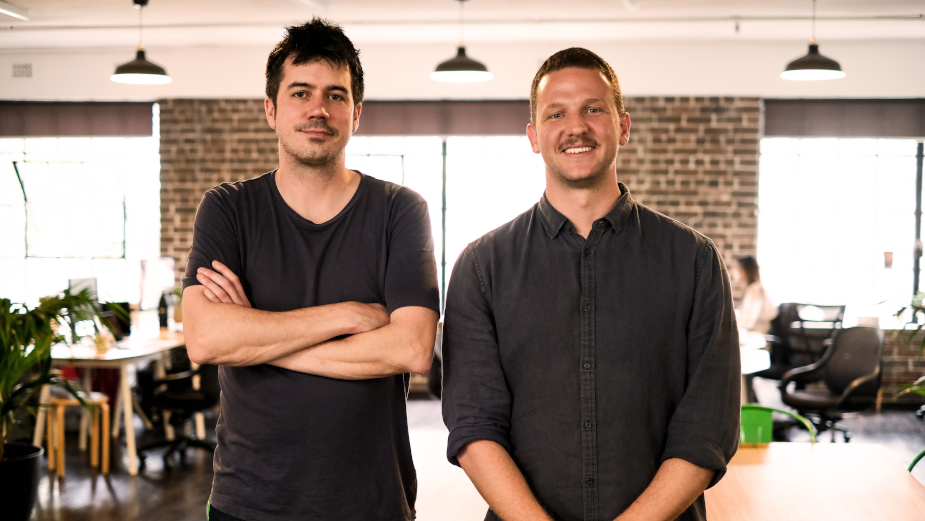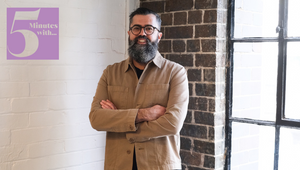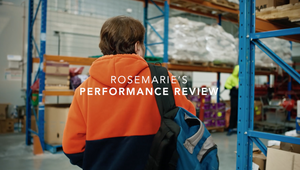
Creativity Squared: Sitting on an Idea with Ross Cockrill and Chris d’Arbon

Chris d'Arbon: An Art Director by trade, Chris has spent the last ten years in the advertising industries of both Australia and Europe. He began in Sydney, designing brands and campaigns for everything from Tourism and Retail to Not for Profits. He then moved to Hamburg for a Creative Director role at Germany’s top independent, Grabarz & Partner. There, he worked on accounts like Volkswagen, Porsche, Ikea, and Burger King – and picked up some awards for his troubles along the way. Working on automotive accounts has taken him around the world and back (in some very fast cars), but now he’s happily back in his hometown of Sydney working with the great folks at Archibald Williams.
Ross Cockrill: Ross has spent the last fifteen years working as a copywriter in many of the top agencies in London and now Sydney, producing campaigns for some of the world’s biggest brands, including Nike, New Balance, Mercedes-Benz, smart, Etihad, Kellogg’s, Lucozade and Citibank.
He has experience working across a variety of different media, above the line, below the line and everything in between. And he’s picked up a few of awards in the process.
After a short spell freelancing in Sydney, Ross’ first permanent role in Australia has been with Archibald Williams, where he intends to stay for as long as they’ll have him…
PERSON
Chris: As a creative person, I’m an observer – of people, trends, subcultures, pop culture, music, everything. I also watch a lot of documentaries because I’m fundamentally interested in people and why they do what they do. So to that end, I look at the world in a humanistic way. Then I interpret those experiences as ideas.
I definitely see creativity as ‘seeing what everyone else has seen but thinking what no one else has thought’. This quote has always stuck with me. Being creative is really just a way of processing all the things around you. Noticing them. Storing them away to draw upon for the next project.
So the way I look at it, the more eclectic that creative ‘stuff’ you consume, the more likely your thoughts, when applied to advertising, will be original. I keep my finger on the pulse of advertising being made in Australia and abroad, but try not to oversaturate myself with it. Those ideas have been done, after all.
Ross: I’d describe myself as an idealistic realist. I’m a bit of a dreamer, but I also like knowing the measure of every task.
Outside of advertising, I love comedy and cryptic crosswords. Working in advertising, you often have your ideas watered down, or find yourself banging your head against a wall, wondering if a solution exists at all. So, I find it liberating to watch people who have complete control over their creative output, regardless of how left field or controversial it may be. And as frustrating as cryptic crosswords are at times, I find it very comforting to know there’s always one correct answer for everything – and that if I bang my head against the wall hard enough, I’ll always find it eventually.
I believe creativity is innate in all of us, to varying degrees. As Picasso said, “Every child is an artist. The problem is to remain an artist once he grows up.” I think that sums up perfectly how creativity is nurtured more than it is learned.
I get bored quickly if I’m not making something or trying something new, so I’d say the thing that separates creative people from not so creative people is more the desire to be creative than creative ability, whatever that is in the first place. But being an overly curious man child with a low attention span also helps loads.
PRODUCT
Chris: I don't think creativity for creativity’s sake should really be judged. A song, a painting, a building... that’s art. Its worth rests solely with whoever is engaging with it. Not to be confused with creativity for commercial gain. We’re paid to sell stuff and attract eyeballs, so I guess, in this industry, work can be judged on its ability to do so.
So from that side of things, first and foremost for me is strategic insight. What’s this piece of communication trying to say? Is it posing a fresh way of looking at the world, or product, a category?
Then it’s the creative execution. In an industry fast becoming consumed by fast and easy social posts, craft is becoming more and more important. Does it look and sound amazing? With the media landscape splintering into a million pieces over the last decade, work needs to be more malleable than ever. So now, I’m always impressed seeing a great 30” TVC reimagined to work just as well as a YouTube pre-roll.
Ross: I think the best way to judge the creativity of a piece of work is to show it to someone who doesn’t work in advertising. If they reckon it’s a good idea, without thinking about what an awards jury might think of it, you’re probably onto a winner.
A few years back we did a thing at my old agency called Market View, where every week we asked the market traders who worked outside our office to comment on the same ads that the industry bigwigs had reviewed in Campaign magazine’s Private View. It was a bit of piss take, but it had a semi-serious point to it.
I feel like, these days, less and less ads are made for the man or woman in the street, and the industry has become a self-indulgent echo chamber. People forget that nine times out of ten we’re just selling stuff, not changing the world.
PROCESS
Chris: I always begin any creative project solo. Mainly because I need to digest everything, do a bit of research, distil my thoughts, write down any (good and bad) ideas I have – then I’m ready to collaborate. Chat with Ross or the wider team. I find I can bring so much more to those brainstorming sessions when I’ve got some considered viewpoints to bring to the table rather than just shooting from the hip. I’ve never found jumping immediately into the thought-sharing process very fruitful. Mainly because thoughts formed five minutes after reading a brief tend to be a little undercooked. I prefer to sit with them for a while.
To do that, I’ve always found it most helpful to anchor my ideas in some kind of cultural or linguistic touchpoint. Is there a social phenomenon or piece of pop culture we can turn on its head, or some common language we can twist? That way, the audience can view your idea with context. You’re not starting from scratch. That said, although much harder to sell, ideas devoid of context can work amazingly well, too – Cadbury’s drumming Gorilla springs to mind – tonally perfect!
Ross: I like to start every project by digesting the brief alone for an hour or two. I often come up with my best idea at that time, even if it’s just the beginning of a thought.
Unless I need to research something or find a specific piece of visual or video reference, I try to stay away from my computer for as long as possible. It’s better to stare at a blank layout pad than an empty deck. Plus, I can doodle on a pad in between having brainwaves (I’ve gotten very good at doodling over the years).
Whenever I get stuck on something, I go for a walk. Usually to a pub. Open plan offices are horrendous places in which to concentrate on anything at the best of times, I find.
PRESS
Chris: Starting out, there was always a gap in my abilities and my ambition. I’d have a nice idea in my head, then I’d tried to externalise it with my limited know-how and it looked horrific. It frustrated me, so I’ve always been a firm believer in working with and for people way better than me. That’s how I honed my craft. If there was a designer in the studio that was awesome, I’d go and sit with them. Then go away and spend hours mucking around on my own trying to get my stuff to look good – with varying degrees of success. So I think the key to facilitating creativity is openness. Share everything – ideas, skills, opinions, beers. It connects us as creatives, but way more as human beings.
Ross: I grew up in the UK and was always very creative as a kid.
When I was six and ½, I entered a colouring-in competition organised by the high street retailer, Marks & Spencer, in the Under 8s category. I came away with first place in the Under 10s. As I walked away with £75 of M&S vouchers stuffed down my tank top and nothing more to prove to the art world, I decided to focus on my wordsmithery instead. And by my eighth birthday, I had my sights firmly set on a career in copywriting.
The rest, as they say, is history…










